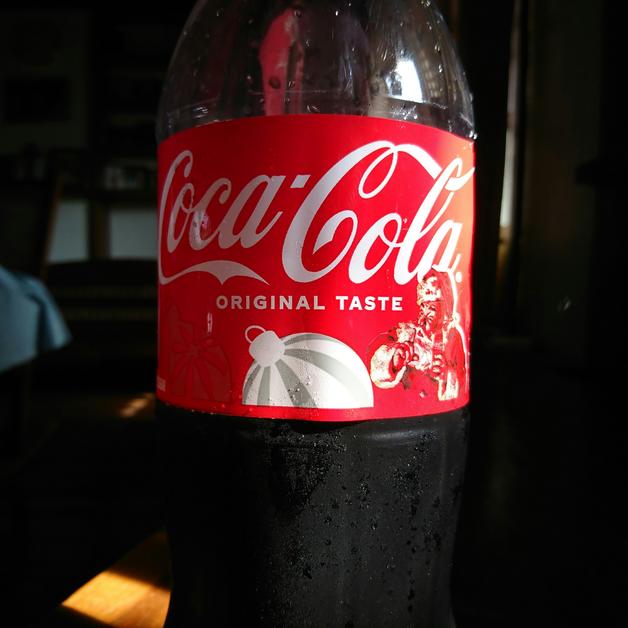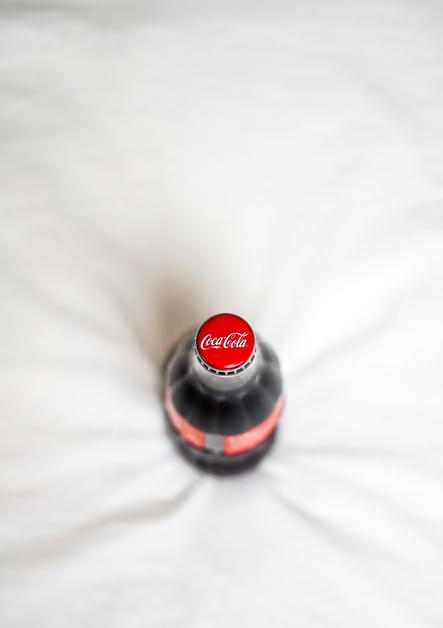Intense fizz, sweet relief—or a wave of questions triggered by a single sip. Many parents, the moment a craving strikes or the refreshing chill of a can tempts, wonder: Coca-Cola during pregnancy—harmless indulgence, or overlooked risk? Doubt creeps in when advice from friends collides with internet forums, and healthcare recommendations seem to shift with every click. Some reach for Coca-Cola hoping to curb nausea, others keep count of hidden sugars and caffeine milligrams. What really happens when you opt for Coca-Cola during pregnancy? And how do you strike a balance between comfort, habit, and optimum health for your baby and yourself? If you’ve puzzled over these dilemmas, the answers—grounded in scientific rigor and parental empathy—unfold below, with clarity and respect for every unique journey.
Unpacking the Ingredients: What’s Inside That Familiar Can?
Coca-Cola during pregnancy raises many questions—each ingredient a story that touches fetal development, maternal well-being, and even the future metabolism of your child. The hit of caffeine—roughly 34 mg in a standard can—might sound trivial, especially when compared to coffee. Yet this molecule crosses the placenta unimpeded, encountering a fetus with immature enzymes, unable to process or eliminate caffeine efficiently. Patterns emerge in research: excessive caffeine exposure may increase risks of miscarriage, low birth weight, or preterm birth, especially when combined with other daily sources. How quickly do these figures add up? Consider energy drinks, chocolate, tea—the sum may surprise you. Parents often wonder if “just one can” has real consequence. In moderation—meaning rarely, and always under the global 200 mg caffeine threshold—science points to minimized concerns.
Then comes the sugar: 39 grams, almost ten teaspoons, in a single serving. That’s more than most adult daily recommendations for added sugar. The spike in blood glucose is immediate, and for some, the resulting “crash” feels just as swift. Over weeks and months, consistent high-sugar intake correlates with gestational diabetes, hypertension, and excessive weight gain—factors that ripple forward, shaping a child’s lifelong risk of obesity or altered glucose regulation.
“Zero” and “Diet” alternatives swap sugar for sweeteners like aspartame or sucralose, celebrated for their calorie-free properties. Major food safety authorities—including FDA and EFSA—frame these sweeteners as safe at ordinary intake. Yet researchers keep asking nuanced questions about rare side effects or high chronic exposure—especially regarding subtle impacts on fetal weight or preterm delivery. No definitive red flags, but moderation stays the watchword.
Phosphoric acid, the “tang” beneath the sweetness, keeps bones in mind—high intake may reduce calcium absorption, especially if paired with a low-calcium diet. Caramel colorants and carbonation itself drive more myths than medical concerns. Official agencies set safety limits, rigorously tested and monitored, and ordinary consumption remains well below thresholds for harm.
Caffeine, Sugar, and Additives: How Much Is Too Much?
For parents tracking every sip, the numbers are telling: Coca-Cola during pregnancy offers 34 mg caffeine and 39 grams sugar in one can. Far from villainizing soft drinks, it’s about portion and pattern—occasional enjoyment rarely causes harm, but repeated excess often does.
- Caffeine: Over 200 mg per day, sustained for weeks, links in robust studies to miscarriage, fetal growth restriction, and preterm delivery. Why? Hormonal changes slow caffeine breakdown, so levels in the fetal bloodstream can exceed those in the mother.
- Added sugar: The American Heart Association champions a cap of 25 grams a day for women. Gestational diabetes is one of the fastest-growing diagnoses in pregnancy clinics; high-sugar beverages are potent contributors.
Artificial sweeteners—aspartame, sucralose, acesulfame-K—are processed differently from sugars. Most health organizations agree: in moderation, and in the context of a varied diet, these compounds are safe. Extremely high consumptions prompt caution, as emerging science investigates links between gut microbiota and metabolic programming in children.
- Short, punchy explanation: Sugar overload strains insulin production; caffeine lingers in fetal blood. Combine both, and the risks leap from theoretical to measurable in population data.
- Broader context: No need to avoid every trace—just learn to scan labels, combine sources, and spread caffeine gently through the day.
Science Check: What Parents Really Need to Know
Myths swirl around Coca-Cola during pregnancy—that carbonation harms the fetus, that colorants are hazardous, that “diet” means risk-free. Here’s what’s credible:
- Colorants: Caramel E150d—the signature brown—receives global regulatory oversight. At standard servings, it’s declared safe by FDA, EFSA, and WHO. Experimental studies use doses hundreds of times higher than a can per day.
- Carbonation: Completely inert for the fetus. Temporary bloating, belching, or heartburn bother some, but nothing crosses the placenta. Some parents report relief from morning sickness with fizzy drinks; others find the acidity worsens symptoms.
- Nutritional value: Both regular and diet versions are treats, not essentials. Neither provides hydration, calcium, protein, or fetal-building nutrients. Variety and balance in liquids matter more than choosing a single “safe” product.
A question that surfaces often: “Is it ever okay to indulge?” The answer is rarely binary. Occasional, deliberate enjoyment—particularly when cravings are intense or emotional comfort calls—is fundamentally different from daily, habitual use.
When Do Beverages Become a Source of Concern?
Clear red flags signal when Coca-Cola during pregnancy may need to be reconsidered.
- Frequent consumption exceeding 1-2 cans per day, especially alongside other caffeine or sugary foods, greatly increases risks: gestational diabetes, excessive maternal and fetal weight gain, and even metabolic consequences for the child in later life.
- Signs such as severe nausea, rapid weight gain, new-onset headaches, persistent thirst, or unusual swelling call for prompt consultation with your healthcare provider.
- For some pregnancies—those complicated by pre-existing diabetes, hypertension, or previous adverse outcomes—extra caution and bespoke advice make sense.
Occasionally, parents discover an unexpected benefit: a small serving may temporarily ease queasiness or provide a needed mood boost. The key lies in recognizing patterns, prioritizing variety, and resisting the slide from occasional treat to routine source of hydration.
Smart Choices: Alternatives and Transition Strategies
Reducing dependence on Coca-Cola during pregnancy often feels surprisingly difficult. Habituation, habit, emotional regulation, and cultural rituals all play roles. Does your craving peak after salty meals? During an energy lull? By tuning into rhythms, parents can set the stage for sustainable changes. Consider these science-backed tactics:
- Substitute mindfully: Sparkling water with citrus slices, herbal infusions like ginger or peppermint, or diluted 100% fruit juice (max 4-6 oz daily) capture familiar sensations without the metabolic cost.
- Stock strategically: Keep alternatives prominent and tempting; shifting visibility can dampen spontaneous cravings.
- Set gentle limits: Reserve Coca-Cola for specific situations—social events, symptom relief, or celebratory moments. Flexibility prevents resentment and boosts adherence.
- Explore homemade fizz: Water kefir or carbonated water with fresh mint delivers bubbles and flavor, minus the sugar and caffeine.
Hydration, always at the top of medical advice, is easily overlooked. Aim for 8-10 glasses (about 2 liters) of varied fluids daily. Unsweetened dairy or plant-based milks add nutrients; herbal teas soothe and comfort.
Building Healthy Habits and Nurturing Resilience
Every family story is different. Some parents shift to water seamlessly; others need months to adjust. A focus on balanced meals—rich in whole grains, lean protein, fruits, and vegetables—drives overall well-being. Regular small meals help stabilize blood sugar and ease queasiness. Fatigue, stress, or morning sickness sometimes fuel cravings for Coca-Cola during pregnancy. Rather than self-judgment, choose curiosity: What’s the underlying need? Energy? Comfort? Routine? When difficulty persists, healthcare professionals offer not only expertise but compassionate support.
Key Takeaways
- Coca-Cola during pregnancy—occasional, moderate intake—fits within safe boundaries when watched for total caffeine and sugar.
- The 200 mg caffeine and 25 grams added sugar thresholds help guard against preventable risks, particularly for fetal growth and metabolic programming.
- Artificial sweeteners present in most “diet” alternatives appear safe in moderation, but ongoing research explores rare side effects and long-term child health.
- Substitution, pattern recognition, and small, manageable changes make reduction feasible; pleasure in variety fosters motivation.
- Robust hydration, nutrient-rich meals, and regular movement build a foundation for pregnancy wellness.
- Seeking guidance is always welcome: health professionals have seen every scenario and offer personalized, non-judgmental advice.
- For parents wishing more personalized strategies or practical health support, the Heloa app provides free, interactive questionnaires and tailored advice for both children and families. Empowerment, not perfection, remains the goal—every step an act of care, both for you and your future child.
Trust your instincts, remain informed, and remember—balance, flexibility, and kindness are essential allies throughout every stage of pregnancy.
Questions Parents Ask
Can drinking Coca-Cola affect the baby’s sleep or behavior?
It’s natural to wonder if what you drink during pregnancy, like Coca-Cola with its caffeine content, may later influence your baby’s sleep or activity. Current research does not directly link a parent’s moderate Coca-Cola consumption to changes in a baby’s sleep patterns or behavior after birth. However, caffeine can affect your own sleep and well-being, which plays an important role in your overall comfort during pregnancy. If you notice that caffeine disrupts your own rest or causes jitters, you might choose to limit your intake to feel more at ease.
Is it safe to have Coca-Cola in the first trimester?
Many parents feel more cautious in the early weeks of pregnancy. While occasional, small amounts of Coca-Cola are unlikely to cause harm, minimising caffeine during the first trimester is often encouraged, since this is an important period for fetal development. Keeping overall caffeine intake below recommended levels is a gentle way to look after both your comfort and your baby’s growth. If you have specific concerns or a history of pregnancy complications, don’t hesitate to discuss them with your healthcare provider for tailored reassurance.
Can Coca-Cola help with pregnancy nausea?
Some parents find that the fizz or coldness of Coca-Cola gives brief relief from nausea, especially when nothing else seems to help. While occasional sips can provide comfort, especially in tough moments, try to use this as just one option among other gentle remedies—like small, frequent meals or herbal teas. Staying open to different strategies allows you to find what truly eases your symptoms, while keeping both hydration and nutrition in mind. If nausea or vomiting persist, seeking advice from a healthcare professional can bring relief and support.










